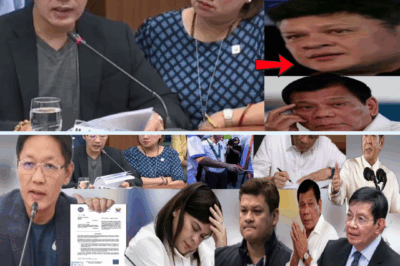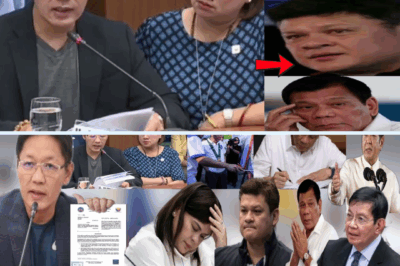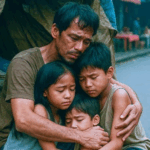Vice Ganda Wins Best Actor at the 73rd FAMAS Awards: A Historic Moment for Comedy and Representation
In a night filled with glamour, tears, and groundbreaking achievements, the 73rd Filipino Academy of Movie Arts and Sciences (FAMAS) Awards carved another unforgettable chapter in Philippine cinema. Among the most talked-about moments of the evening was the announcement that Vice Ganda, the country’s “Unkabogable Superstar,” had officially won the Best Actor Award—a triumph that not only cemented the comedian’s place in film history but also marked a significant cultural milestone.
Vice Ganda, whose real name is Jose Marie Viceral, is no stranger to the spotlight. Known for blockbuster comedies, electrifying stage presence, and a sharp wit that has endeared millions, Vice has long been recognized as one of the most influential figures in Philippine entertainment. But winning a Best Actor award from FAMAS—an institution often associated with traditional, dramatic performances—signals a powerful shift in how audiences and critics perceive comedy and representation in film.
Breaking the Mold: Comedy as Award-Worthy
For decades, Philippine award-giving bodies have often leaned towards recognizing heavy dramas, socially conscious films, and emotionally wrenching performances. Comedy, despite being the country’s most commercially dominant genre, was usually sidelined when it came to prestige awards.
Vice Ganda’s win disrupted that narrative. The role that earned the award was not only comedic but layered with emotional nuance, offering both laughter and heart. Critics noted how Vice infused depth into what could have been a purely comedic character, balancing slapstick humor with moments of vulnerability and truth.
This recognition challenges the long-standing notion that only “serious” acting deserves accolades. It sends a message that comedy—especially when performed with intelligence, timing, and emotional resonance—is just as valid and powerful as drama.
Representation and Visibility
Beyond the comedic achievement, Vice Ganda’s win carries weight in terms of representation. As an openly LGBTQ+ performer, Vice has long used comedy and film to break stereotypes, challenge prejudice, and bring queer narratives into mainstream Filipino culture.
By awarding Vice the Best Actor trophy, FAMAS not only celebrated individual talent but also acknowledged the broader impact of representation. It was a validation of the idea that actors need not conform to traditional norms of masculinity or femininity to be celebrated. Talent, authenticity, and cultural influence are enough.
For the LGBTQ+ community in the Philippines—still grappling with legal and social inequalities—Vice’s victory is symbolic. It shows that barriers can be broken, and it inspires younger generations of queer artists to embrace their identities without fear of rejection from the industry.
The Journey to the Top
Vice Ganda’s path to becoming a Best Actor awardee was far from easy. Starting as a stand-up comedian in small comedy bars in Manila, Vice’s sharp humor and fearless takes on social issues quickly drew attention. This led to appearances on television, and eventually, to a regular hosting gig on the noontime variety show It’s Showtime.
Vice’s leap into the film industry was marked by box-office domination. Movies like Praybeyt Benjamin, Sisterakas, and The Super Parental Guardians consistently smashed records, making Vice one of the most bankable stars in Philippine cinema. Yet despite these commercial successes, critical recognition was elusive—until now.
The FAMAS Best Actor win represents not only a career milestone but also a kind of vindication. It proves that Vice’s artistry is not confined to comedy bars or family-friendly blockbusters. It has evolved into something profound enough to be celebrated by one of the country’s most prestigious award-giving bodies.
A Night of Emotions
When Vice Ganda’s name was called, the reaction inside the venue was electric. The crowd erupted into applause, some standing to give the superstar a heartfelt ovation. Vice, visibly emotional, walked to the stage and delivered an acceptance speech that resonated with sincerity and gratitude.
“Comedy is not just about making people laugh,” Vice said. “It’s about healing, about giving hope, and about showing that joy is powerful. This award is not only for me—it’s for everyone who has ever been told they don’t belong, that their art is not worthy. Tonight, we proved them wrong.”
The speech struck a chord with both fans and fellow artists, many of whom took to social media to celebrate the victory. Hashtags related to Vice Ganda’s win quickly trended, reflecting the immense public support and pride in this achievement.
The Industry’s Reaction
Filmmakers, actors, and critics were quick to praise FAMAS for recognizing Vice’s work. Director Cathy Garcia-Molina, who has worked closely with Vice in past projects, remarked that the win was “long overdue,” highlighting Vice’s ability to connect with audiences in ways few performers can.
Others noted how the recognition could open doors for comedy actors and performers who often feel overlooked during awards season. It could inspire more filmmakers to invest in stories that balance humor with heart, knowing that such projects can achieve both commercial and critical success.
The Bigger Picture
Vice Ganda’s Best Actor win also reflects broader changes in the Philippine film industry. As streaming platforms, social media, and shifting audience tastes reshape cinema, traditional hierarchies of genre and performance are being challenged. The win suggests that award-giving bodies are beginning to evolve, recognizing diverse forms of artistry that reflect modern realities.
In a time when comedy has often been dismissed as “less serious,” Vice’s achievement underscores its importance. Laughter is not just entertainment—it is survival, especially in a country facing economic struggles, political debates, and cultural shifts. Vice has consistently used humor as a tool of resilience, and now that artistry is formally recognized at the highest level.
What’s Next for Vice Ganda?
With a FAMAS Best Actor trophy now in hand, the possibilities for Vice Ganda seem limitless. While comedy will likely remain a central part of future projects, the award may inspire Vice to explore even more diverse roles, blending humor with drama, or even venturing into unexpected genres.
There is also the question of influence. Vice’s win could encourage more inclusivity in casting and storytelling, opening doors for marginalized voices in film. By breaking barriers, Vice has not only achieved personal success but has paved the way for others to follow.
Conclusion
Vice Ganda’s victory at the 73rd FAMAS Awards is more than just another trophy on the shelf of a superstar. It is a landmark moment in Philippine cinema—one that redefines what it means to be a great actor, challenges biases against comedy, and celebrates the power of representation.
For audiences, it is a reminder that laughter can be as profound as tears, and that joy can be as transformative as sorrow. For the industry, it is a call to broaden horizons and embrace diversity in storytelling and performance. And for Vice Ganda, it is a well-deserved recognition of a career built not only on humor but on resilience, authenticity, and a boundless connection with the Filipino people.
As the applause still echoes from that unforgettable night, one thing is certain: Vice Ganda’s FAMAS Best Actor win is not just history—it is a glimpse of the future of Philippine cinema.
News
Alcantara’s shocking testimony shakes Villanueva and Estrada—dark secrets surface, power trembles, and the nation demands the hidden truth.
Breaking News: Villanueva and Estrada Under Fire as Henry Alcantara Testifies In a stunning twist that has sent shockwaves across…
Villanueva and Estrada shaken—Alcantara’s explosive testimony reveals hidden secrets, sparking fear, betrayal, and a nation demanding shocking answers.
Breaking News: Villanueva and Estrada Under Fire as Henry Alcantara Testifies In a stunning twist that has sent shockwaves across…
Villanueva, Estrada cornered—Alcantara’s shocking testimony drops bombshell secrets, power crumbles, and the nation braces for explosive truth.
Breaking News: Villanueva and Estrada Under Fire as Henry Alcantara Testifies In a stunning twist that has sent shockwaves across…
Discaya’s bombshell rocks the Dutertes—secrets explode, power crumbles, and the nation holds its breath for the truth.
Breaking News: Duterte Family Faces Political Firestorm as Discaya Testifies In a political drama that has gripped the Philippines like…
Duterte empire on the brink—Discaya breaks silence, explosive secrets revealed, power shaken, and the nation waits breathlessly.
Breaking News: Duterte Family Faces Political Firestorm as Discaya Testifies In a political drama that has gripped the Philippines like…
Discaya’s shocking testimony ignites firestorm—Duterte dynasty shaken, secrets exposed, and a nation demands answers to chilling allegations.
Breaking News: Duterte Family Faces Political Firestorm as Discaya Testifies In a political drama that has gripped the Philippines like…
End of content
No more pages to load










